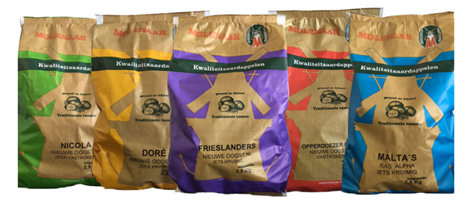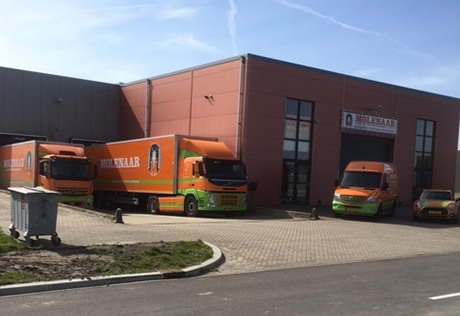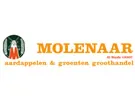Felix Molenaar, of the Dutch potato and vegetable wholesaler Molenaar, cannot complain about the current local market. "Demand is stable. The worst pandemic pressure's over, and packaged potatoes sales, in particular, are slightly higher than before," he says.
"Inflation favors somewhat cheaper food. There's also good demand for sauerkraut and kale. Plus, potato yields in the Netherlands have been great. Not everyone's celebrating, but in some areas, top yields have been achieved. Growers in arid areas have done very well, achieving a ten percent yield increase."
 © Fa. Molenaar
© Fa. Molenaar
"Yet, growers face challenges aplenty. The germicide ban means there's a lot of supply. For smaller growers with no crate storage, this is becoming a particularly significant issue. The larger packers ignore these potatoes; exporters can't sell them; even retailers can't take them all. Growers offer me batches every day," continues Felix.
"That's becoming especially problematic for large seed potatoes, most of which would, otherwise, be exported. Last year, several batches were lost because of that. It takes three weeks for a shipment to reach distant destinations by road. Then the potatoes pretty much begin growing out of their bags. That's a crying shame for growers who could usually get these potatoes nicely cleared away."

"The market is, thus, divided. French fries factories are struggling, and processors are scaling back production to cut costs. That creates market tension. Growers want to get rid of their potatoes because they have so much, yet this is another lazy market with firm prices. Still, growers are confident about the season because there are fewer potatoes Europe-wide. They're not just selling their potatoes, willy-nilly," Felix concludes.
 For more information:
For more information:
Fa. Molenaar
Hall 23, 1 Jan van Krimpenweg
2031 CE, Haarlem, NL
Tel.: +31 (0) 235 322 173
Email: [email protected]










